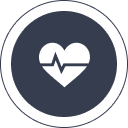The LifeWorx Guide to Alzheimer’s and Dementia Care
Since 2004, LifeWorx has specialized in Alzheimer’s and dementia elderly care and has been consistently finding ways to simplify the process for our caregivers and clients.
This resource guide is intended to answer your questions and offer suggestions as needed. Our Care Consultants are available to help you understand how best to serve your loved one and how to proceed during this difficult time.






